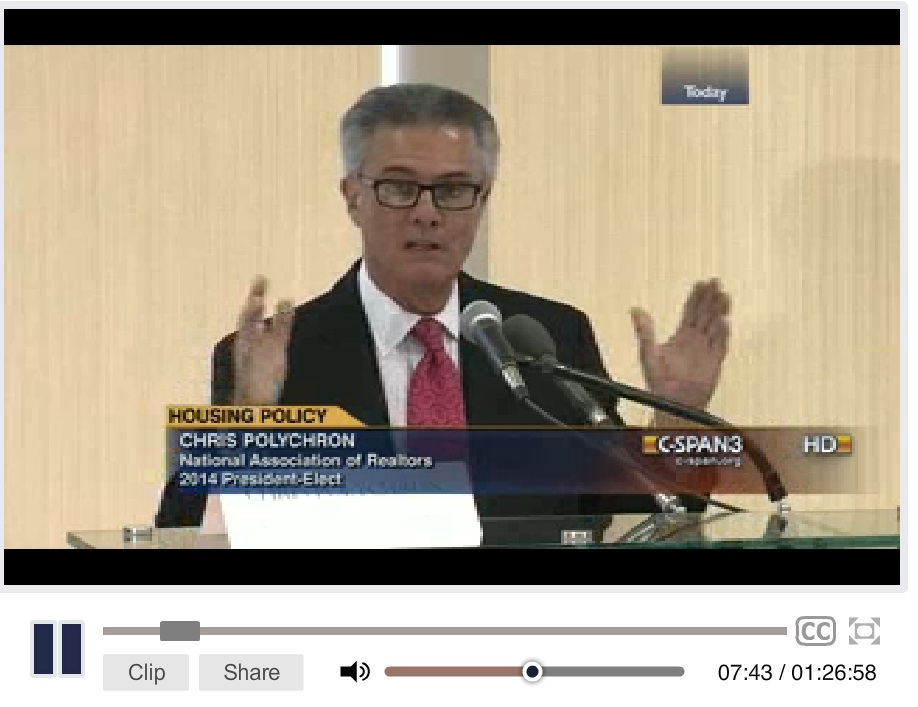2014 ushers in new federal real estate laws
Many changes have recently taken place at the Federal level, and will affect your business in 2014. Be sure to stay up to date on the changes and how they may affect the real estate industry. Here are a few things to be aware of:
QUALIFIED MORTGAGE
NAR President-Elect Chris Polycron recently held a forum with Consumer Financial Protection Bureau chief Richard Cordray and leading economists on the impact of the Qualified Mortgage rule on lending and access to credit. Click here to view the forum.
Home loan lenders will be playing by new rules starting January 10th. The underwriting standards lenders must now follow include Qualified Mortgage (QM). While many REALTORS® may not have to directly deal with this rule, many economists predict access to credit will be restrained by as much as 10% as a result of QM, which would lead to fewer qualified borrowers for home loans. In addition, owners of affiliated businesses in a real estate transaction have limits on fees and points they can charge.
A QM sets the standard for the “ability to repay” the loan that lenders must make sure borrowers must meet or the loan will be considered “risky.” The QM is a loan that on its face would meet the ability to repay standards and have certain features associated with “safe” lending.
The biggest change doesn’t impact REALTORS® business, but the owners of affiliated real estate services. The QM rule fixes the percentage (at 3%) affiliated businesses can charge in fees and points in a real estate transaction. There is no cap for unaffiliated businesses. The QM rule does require numerous items to be considered in fees and points when determining for purposes of meeting the 3% cap. It establishes circumstances when all or part of appraisal fees will be included and there will be times when private mortgage insurance will be included (but not FHA and other government guarantee or insurance fees). Read more about the QM rule, here.
MORTGAGE DEBT CANCELLATION ACT
Mortgage debt forgiven by a lender in a short sale or foreclosure will be taxed at ordinary income rates starting January 1st. A relief to paying this income tax expired. It is possible Congress could extend this tax exemption and make it retroactive. However, Without an extension, homeowners who have any amount of a mortgage forgiven by a lender either in a short sale or foreclosure would be subject to paying income taxes (at ordinary rates) on the amount of the forgiveness.
While there are still many procedural obstacles to overcome, Congress will most likely address individual tax provisions retroactively in 2014. As was the case with a previous extension, Congress is expected to retroactively apply Mortgage Cancellation relief to include transactions between January 1, 2014 and the enactment of the extension. While the Senate has pledged to act early in 2014, the timing of a house vote is far less certain as House Republicans contemplate a vote on a larger tax reform package. As always, REALTORS® should not be giving tax advice to clients and should be encouraging them to consult a CPA. Read more about Mortgage Debt Cancellation, here.
FHA LOAN LIMITS
The new single-family FHA loan limit in the tri-county is $308,200, down from $335,000. This will apply to all new case files opened in 2014. This is a result of FHA using 115% of the area median income instead of 125% as in the past. CTAR is analyzing the data and the requirements HUD used to determine the loan limits to see if an appeal should be made for the Charleston MSA. Read more about FHA loan limits, here.
Want to know more? We have a speaker for you!
For more information – have CTAR’s Government Affairs Director Ryan Castle come to your office and discuss any government regulations regarding real estate. You can contact him via email or (843) 793-5212.









